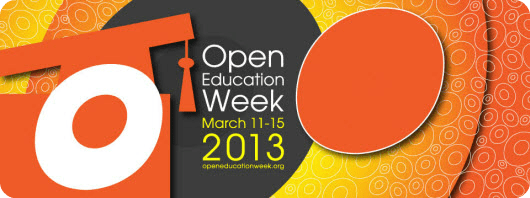
When it comes to finding free and open educational resources many educators used to face an uphill battle. This all changed with the foundation of Creative Commons (CC) by a group of thought leaders, education experts, technologists, legal scholars, investors, entrepreneurs and philanthropists back in 2001.
The idea being that anybody (including educators) can freely share their intellectual content through a cleverly crafted licensing system that complies with current copyright laws. The first version of the licenses was introduced in 2002 with a specific set of permissions established by the Creative Commons foundation; since then three versions have been released.
The Creative Commons licensing system allow content creators to share as much or little content as they want to. The group celebrated their 10th year anniversary this past December and currently are in the process of putting the finishing touches to version 4.0 of the licensing scheme.
This week I had the opportunity to sit down with their CEO, Catherine Casserly for a Google+ hangout to talk about Creative Commons, their vision for education and how educators worldwide can benefit from its use.
We also talked about Open Education Week (March 11-15, 2013) and the many activities they have planned this year. The purpose of Open Education Week is to raise awareness about the open education movement and its impact on teacher and learning worldwide. To learn more about Open Education Week please click the banner below.
So where can you find out more about Creative Commons and Open Educational Resources. Please take a look at some of these resources below.
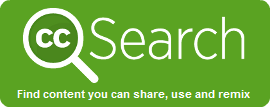 Please note that search.creativecommons.org is not a search engine, but rather offers convenient access to search services provided by other independent organizations. CC has no control over the results that are returned.
Please note that search.creativecommons.org is not a search engine, but rather offers convenient access to search services provided by other independent organizations. CC has no control over the results that are returned.
Do not assume that the results displayed in this search portal are under a CC license. You should always verify that the work is actually under a CC license by following the link. Creative Commons is a nonprofit organization that enables the sharing and use of creativity and knowledge through free legal tools.
 The OpenCourseWare Consortium is a worldwide community of hundreds of higher education institutions and associated organizations committed to advancing OpenCourseWare and its impact on global education.
The OpenCourseWare Consortium is a worldwide community of hundreds of higher education institutions and associated organizations committed to advancing OpenCourseWare and its impact on global education.

MIT OpenCourseWare has been releasing its materials — web versions of virtually all MIT course content — under a CC BY-NC-SA license since 2004. Today, MIT OCW has 2000 courses available freely and openly online for anyone, anywhere to adapt, translate, and redistribute. The OpenCourseWare concept has now spread to hundreds of universities worldwide.
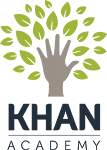
The Khan Academy offers over 3,000 instructional videos covering everything from basic algebra to advanced chemistry, biology, and even the current day banking crisis. The Khan Academy is currently exploring a system that awards learners points and badges as they progress.
Boundless helps students learn better by connecting them with a wealth of high quality, openly licensed, free educational content, as well as the tools they need to succeed. They firmly believe knowledge should be free and have gathered the best open educational resources available on the web. This comes as a great alternative to the high cost of commercial textbooks.

The CK-12 Foundation addresses the growing costs of textbooks and the closed, outdated medium in which they are available. Focusing specifically on textbooks for U.S. K-12 schools, the nonprofit works with states and institutions to build web-based, collaborative “flexbooks” that are free to use and adapt in multiple formats like PDF, iPad and Kindle. Over 90 textbooks are available for reuse under the CC BY-NC-SA license. The CK-12 Foundation is also a major contributor to the California Free Digital Textbooks Initiative, a CA initiative that aligns open textbooks to state standards.
 Curriki is known as the “next generation wiki” for K-12 education; it is an online community and wiki platform for teachers, learners, and education experts to share, reuse, and remix educational resources. Instead of purchasing supplemental materials, teachers can find and develop resources, share lesson plans, and collaborate on materials with each other. More than 40,000 educational resources are available on the platform under CC BY-NC, with much of this content aligned to state standards.
Curriki is known as the “next generation wiki” for K-12 education; it is an online community and wiki platform for teachers, learners, and education experts to share, reuse, and remix educational resources. Instead of purchasing supplemental materials, teachers can find and develop resources, share lesson plans, and collaborate on materials with each other. More than 40,000 educational resources are available on the platform under CC BY-NC, with much of this content aligned to state standards.
 Connexions is a repository and collaborative platform of educational materials that breaks down larger collections, such as textbooks and courses, into basic building blocks known as modules. Each module has a corresponding web page, so educators can mix and match pages to create custom lessons. All ~20,000 modules are licensed CC BY so they can be continually edited, translated, and adapted. Collaborative Statistics is an example of one textbook that has seen this remix and revision since its initial publication on the platform.
Connexions is a repository and collaborative platform of educational materials that breaks down larger collections, such as textbooks and courses, into basic building blocks known as modules. Each module has a corresponding web page, so educators can mix and match pages to create custom lessons. All ~20,000 modules are licensed CC BY so they can be continually edited, translated, and adapted. Collaborative Statistics is an example of one textbook that has seen this remix and revision since its initial publication on the platform.
![]() Bloomsbury Academic is an imprint of Bloomsbury Publishing Plc, publisher of the Harry Potter series. Bloomsbury Academic publishes its research titles in the humanities and social sciences under CC BY-NC, with the complete text of its CC-licensed publications available on its website. Bloomsbury Academic also offers the printed or ebook versions for purchase, resulting in a hybrid business model where free digital access supplements high quality formats. Its research publications include CC Board member Lawrence Lessig’s Remix: Making Art and Commerce Thrive in the Hybrid Economy.
Bloomsbury Academic is an imprint of Bloomsbury Publishing Plc, publisher of the Harry Potter series. Bloomsbury Academic publishes its research titles in the humanities and social sciences under CC BY-NC, with the complete text of its CC-licensed publications available on its website. Bloomsbury Academic also offers the printed or ebook versions for purchase, resulting in a hybrid business model where free digital access supplements high quality formats. Its research publications include CC Board member Lawrence Lessig’s Remix: Making Art and Commerce Thrive in the Hybrid Economy.
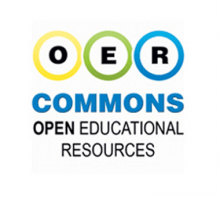 OER Commons Open Educational Resources (OER) are teaching and learning materials that you may freely use and reuse, without charge. Open Educational Resources are different from other resources a teacher may use in that OER have been given limited or unrestricted licensing rights.
OER Commons Open Educational Resources (OER) are teaching and learning materials that you may freely use and reuse, without charge. Open Educational Resources are different from other resources a teacher may use in that OER have been given limited or unrestricted licensing rights.
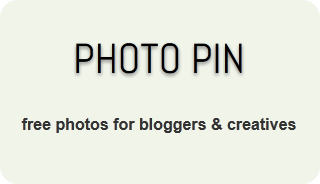 Photo Pin is my favorite website to search for images with Creative Commons licenses. They allow you to search millions of Creative Commons photos from Flickr and so you can easily add them to your blog posts, class projects or student assignments.
Photo Pin is my favorite website to search for images with Creative Commons licenses. They allow you to search millions of Creative Commons photos from Flickr and so you can easily add them to your blog posts, class projects or student assignments.
![]() Peer 2 Peer University (P2PU) is a grassroots education project that organizes learning outside of institutional walls and gives learners recognition for their achievements — creating a model for lifelong learning alongside traditional higher education models. Leveraging the Internet and open educational resources, P2PU provides a social environment for anyone to organize courses, study groups, and design challenges on anything from Copyright 4 Educators to Webmaking 101. All community-produced content is made available for reuse under a default CC BY-SA license. P2PU is also exploring alternative methods of assessment and certification through its badges pilot.
Peer 2 Peer University (P2PU) is a grassroots education project that organizes learning outside of institutional walls and gives learners recognition for their achievements — creating a model for lifelong learning alongside traditional higher education models. Leveraging the Internet and open educational resources, P2PU provides a social environment for anyone to organize courses, study groups, and design challenges on anything from Copyright 4 Educators to Webmaking 101. All community-produced content is made available for reuse under a default CC BY-SA license. P2PU is also exploring alternative methods of assessment and certification through its badges pilot.
As always if you like this post feel free to leave your comments and questions below. Let’s keep the conversation going on Twitter @AnibalPachecoIT and Subscribe to our YouTube channel.
